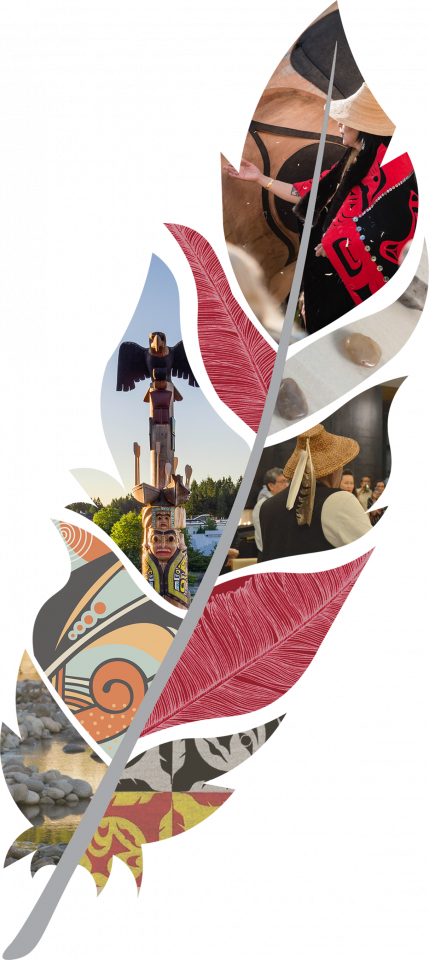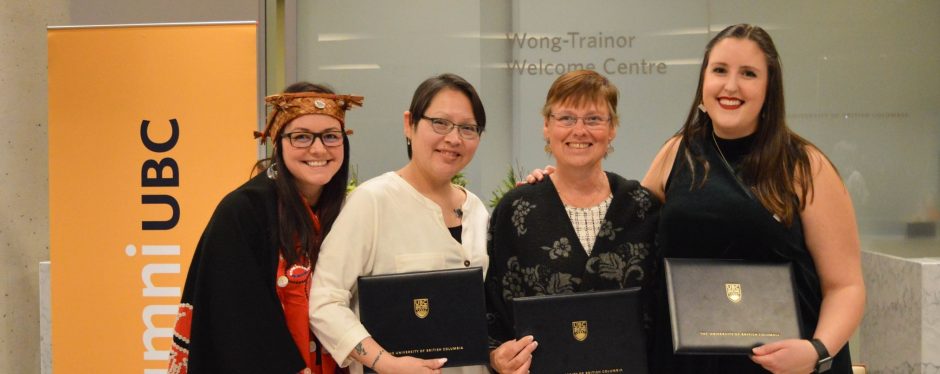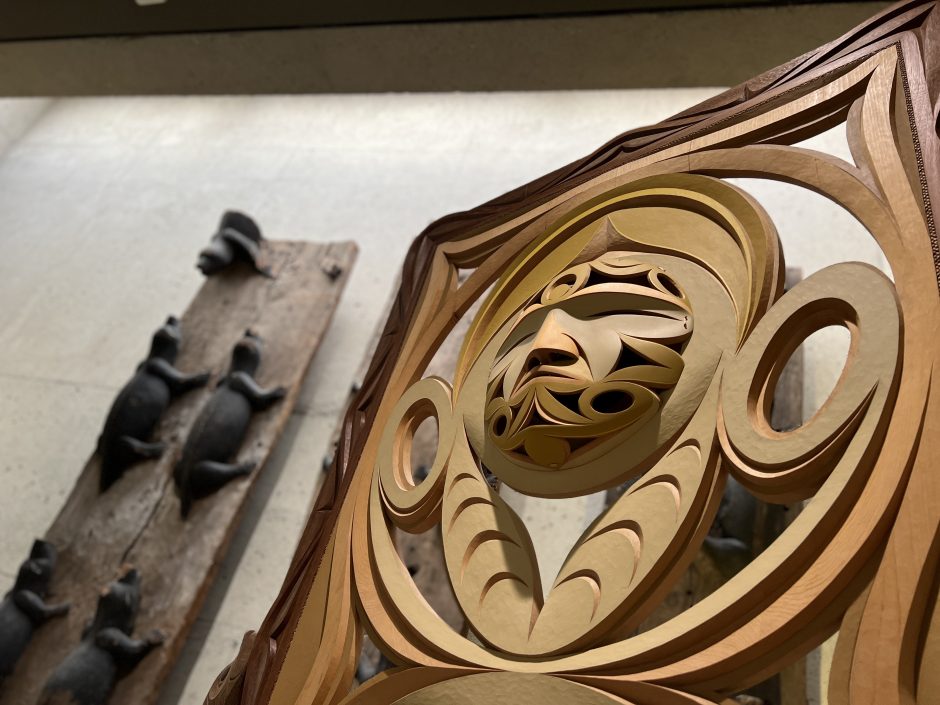

Welcome to SPPH 404: Indigenous Health : Historical Impacts and Contemporary Approaches!
This course covers an epistemological approach that considers the social determinants of health and Indigenous spiritual-environmental and cultural perspectives and approaches to health and wellness. It will include lecture, safe space for small and large group discussions, talks from Indigenous health leaders, and applied learning activities. Gain insight on Indigenous peoples’ perspectives on health and wellbeing, analyze the impacts of colonization and related policies on Indigenous peoples, and learn about cultural and traditional healing approaches to health policies, services, and practices. The strengths and resiliency of Indigenous peoples will be highlighted throughout the course.
Learning Outcomes:
- Gain insight into and value Indigenous peoples’ perspectives on health and wellbeing.
- Analyze the impacts of colonization and related policies (Residential Schools, Indian Hospitals, Indian Act, Treaties and Land Claims, Truth and Reconciliation) on the health and wellbeing of Indigenous peoples.
- Interpret how government policies, practices, and structures impact Indigenous health and wellbeing today.
- Relate the social determinants of health for Indigenous peoples to their impact on key health issues such as chronic diseases, cancer, mental health, addiction, and
- Outline the cultural determinants of health.
- Describe cultural and traditional healing approaches to health policies, services, and practices.
- Illustrate the mental health and wellness issues and challenges Indigenous people face.
- Design a health service that implements Indigenous approaches to health and wellness.
- Commit to cultural safety and exemplify cultural humility.
Learning Activities:
Reflection and discussion are key aspects of integrating the knowledge from this course. There will be opportunities for discussion in pairs, in small groups and an emphasis on activities that include critical thinking, creativity, applied learning, and self-reflection. Students will have the opportunity to participate in cultural activities such as talking circles and hear from Elders and cultural people who will drum and share traditional stories and teachings.
Highlights of Topics Covered:
Holistic views of health and wellness from First Nations, Metis and Inuit perspectives
- Impacts of colonization and overview of Residential Schools, Indian Hospitals, Indian Act, Reserve System, 60’s scoop, Murdered and Missing Women, Idle No More, Black Lives Matter
- How systemic racism impacts Indigenous people’s health and the culturally safe policy and programs needed to address it.
- Social determinants of health for Indigenous Peoples including self-determination and connection to culture.
- Culture and identity and their impacts on mental health and wellness
- Models and examples of successful health and wellness programming that incorporate traditional healing and approaches
Please be sure to check when your course registration date is through the UBC Student Service Center (UBC SSC) -Registrations begins in June:
View course Description at UBC Calendar | SPPH
- June 4th for graduate students,
- June 10-13th for fourth/fifth year students.
The School of Population and Public Health offers two courses with a focus on Indigenous Health
SPPH 404 (Indigenous Health: Historical Impacts and Cultural Approaches) and SPPH 536 (Aboriginal People and Public Health: Ethics, Policy, and Practice).
SPPH 404 provides an introduction to Indigenous public health, giving valuable insight into Indigenous perspectives on health and wellness, an outline of the various cultural determinants of health, an exploration of systemic racism, privilege, and personal reflections on positionality in relation to Indigenous peoples. This course will also provide a foundation of the history and current impacts surrounding Indigenous public health in Canada.
SPPH 536 provides opportunities for deeper understanding into the link between historical and current government practices and intergenerational Indigenous health outcomes, critical analysis of ethical frameworks and issues in Indigenous public health, and analysis of historical and current Canadian legislation relevant to Indigenous public health.
For those considering taking one or both courses— it is strongly recommended that students without prior knowledge or lived experience of Indigenous health take SPPH 404 first. For Masters in Public Health students struggling to navigate the decision between the two courses, please contact Gina Abernethy (gina.abernethy@ubc.ca) to further discuss which course is right for you.
Course offerings from SPPH are available on the website here
Leave us your email! To get notified when the SPPH404 is starting registration again!
Student Testimonies

” As public health professionals, we are going to have monumental impact on the health of Indigenous populations. Indigenous people have put in the work to outline what is needed to live in a world where their rights are respected and upheld. It is now the responsibility of non-Indigenous people to begin their own work, which starts with education on the colonial history of Canada. Understanding the lived experiences of Indigenous peoples, today and throughout colonial history, is a vital step in becoming competent public health professionals who will not inflict further harm. “
– Jorden Hendry, mixed Tsimshian/settler, Lax Kw’alaams Band, Masters of Public Health, Project Assistant & Graduate Research Assistant and Centre for Excellence in Indigenous Health

” As future public health professionals, we have a responsibility to learn about whose land we are on, the impact of colonization on the health of Indigenous people, and how to break down colonial structures and systems. In addition, this course is an important opportunity to learn about Indigenous culture. There is so much invaluable knowledge to be gained from Indigenous ways of knowing! “
– Eryn Braley, mixed Cree/settler, Saddle Lake Cree Nation, Masters of Public Health, graduate research assistant at the Centre for Excellence in Indigenous Health

” As an Indigenous UBC student, SPPH 404 provided a safe space for connection with my Indigeneity and peers through decolonized teachings of Indigenous health and well-being. Through a carefully curated collection of Indigenous research articles, speakers, knowledge holders, and discussion points, SPPH 404 allowed me to address and learn about complex issues affecting Indigenous people spiritually, mentally, physically, and emotionally. At the end we worked as groups to connect all our learnings in creating a project proposal for Indigenous programming.“
– Olivia Baptiste, Tsilqot’in and Secwépemc from Xatśūll First Nation, Bachelor of Science Major in Biology, SSP/VISE Program Manager at the Centre for Excellence in Indigenous Health

” SPPH 404 was one of the few courses I took during my undergrad that actively centred Indigenous voices and ways of knowing. I was provided with invaluable advice, perspectives, and experiences from our all-Indigenous teaching team. Along with the exceptionally thoughtful students in the course, the teaching team worked diligently to decolonize academia and to create a safe space for our discussions on difficult topics. SPPH 404 was the first academic setting where I truly felt comfortable voicing my thoughts and experiences as an Indigenous woman, and I grew so much through my time in this course. “
– Cameryn Meloche, Kanien’kehá:ka, Bacheor of Science in Microbiology & Immunology, Indigenous Public Health Training Program Assistant at the Centre for Excellence in Indigenous Health

” In SPPH 404, I learned of the critical cultural connection to health and wellness through Indigenous knowledge systems, including land-based programming, traditional medicines, and holistic health. I was shown the importance of strength-based approaches to healing, honoured to have learned from powerful, Indigenous voices. As a non-Indigenous student, I learned how to use my privilege in a good way, to advocate, ask questions, and extend support. I found my own mental, spiritual, and emotional health improved through these teachings. “
– Simrit Mahil, SPPH 404 student



